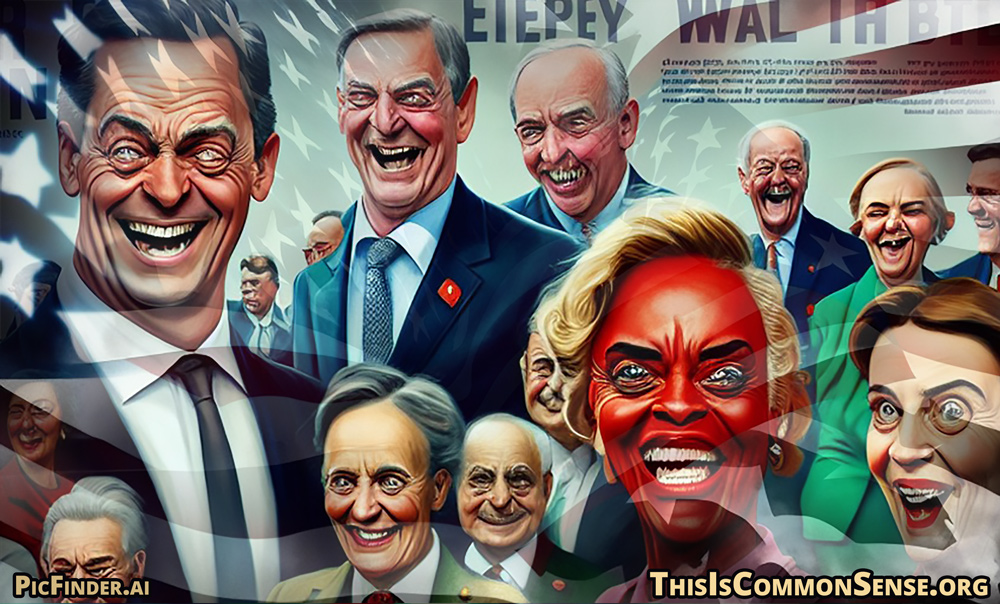When the term “the Deep State” entered our vocabulary, establishmentarians and insiders were annoyed. They argued the term was meaningless or vague or designated something that did not exist.
The rest of us accepted the term to identify the parts of the administrative state — coupled with the military-industrial complex’s corporations — that keep big secrets and act mostly independently of our democratic-republican institutions, including those who work behind the scenes to effect policy and mold public opinion.
The Deep State is all-too-real.
Now that National Public Radio has been dubbed “state-affiliated media” by Elon Musk’s Twitter, it may be time to add a new term to our lexicon: the Wide State.
“It was unclear why Twitter made the move,” writes David Bauder of the AP. “Twitter’s owner, Elon Musk, quoted a definition of state-affiliated media in the company’s guidelines as ‘outlets where the state exercises control over editorial content through financial resources, direct or indirect political pressures, and/or control over production and distribution.’”
When NPR objected on Twitter, Musk tweeted back: “Seems accurate.”
But, but, but, they sputter: only 1 percent of NPR’s budget is from the federal government, and the organization has a well-established editorial independence!
Well, as the power of the Deep State has shown, directorial independence does not really constitute a non-state nature.
It’s obvious that many “private” institutions do exert immense political and governmental power: corporations through regulatory capture; news media through rank partisanship; all organizations that express eagerness to (and have demonstrated repeated instances of) collaborating with partisans in power.
These constitute the Wide State.
Of which NPR is a part.
Besides, if NPR lives “only” with a single percentage-point subsidy, why not cut the umbilical cord and prove its independence?
And get Twitter to change the label.
This is Common Sense. I’m Paul Jacob.
Illustration created with PicFinder.ai
See all recent commentary
(simplified and organized)
See recent popular posts

2 replies on “NPR’s Wide Stance”
The Federal government could eliminate direct funding entirely and NPR would remain very much state-affiliated.
While direct funding from the Federal budget may account for only about 1% of NPR’s budget, one should also look into the various forms of indirect funding by the Federal government, and into direct and indirect funding by the constituent states and by their municipal governments.
Moreover, the vast majority of the affiliated stations — whence comes most of the content of NPR — are owned by institutions of the constituent states. For example, WOSU is owned unsurprisingly by the Ohio State University and KOSU by Oklahoma State University; KPBS is owned by San Diego State University; WHRO and WHRV are owned by a consortium of state-run schools in Virginia; KUT is owned by the University of Texas and KUHF by the University of Houston.
NPR is signally dishonest in pretending to be anything like a private institution.
NPR and generally all of the broadcast media are licensed and cannot function without maintaining their relationships with the government (which is seeking to establish actual and direct control over “social media” as well.)
The war over who controls and majorly influences the information is never ending and the government (elected and in power or the administrative deep or wide state) has clear advantage.
As a most recent example ABC, an allegedly independent news source, blurred out the “text Trump”information on the podium during his post-indictment speech. The message of that action as to ABC’s partisanship is clear, and clearly dangerous unless noticed and commented upon.
However, the more dangerous course is “regulating” such activities.
The denials of NPR are hollow.
Freedom cannot survive without a free flow of accurate information to the electorate coupled with an ability of the electorate to chose it’s sources, parties, candidates and policy. The only means by which that can be assured is by free access to the media, no censorship and an understanding there is never any completely unbiased outlet.